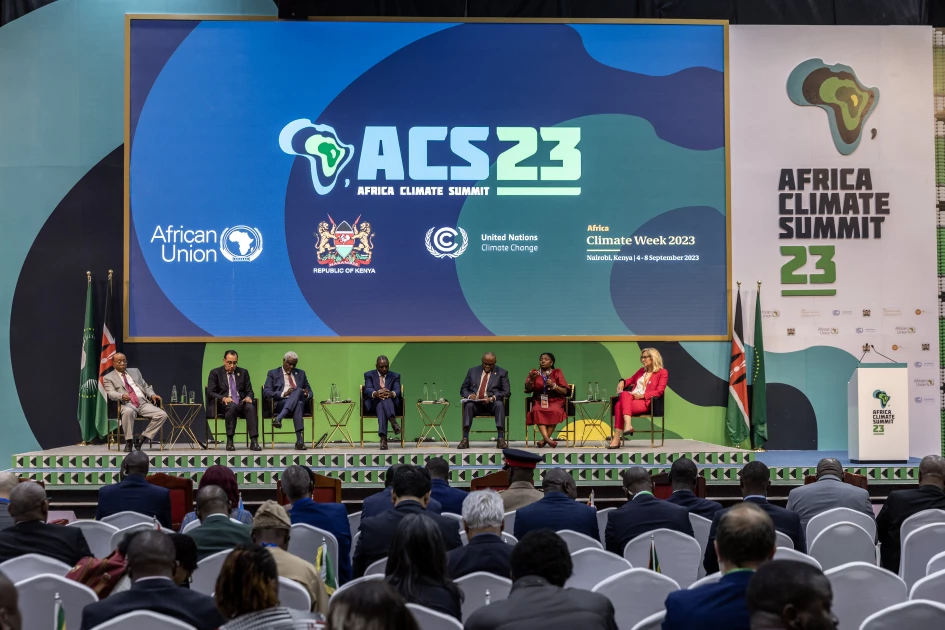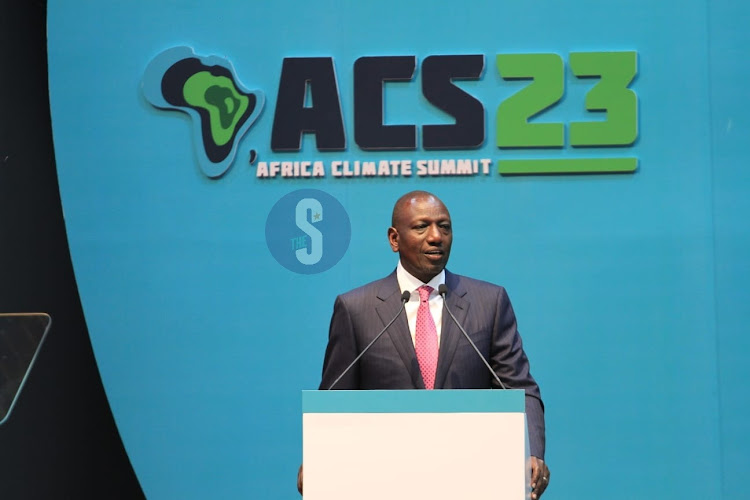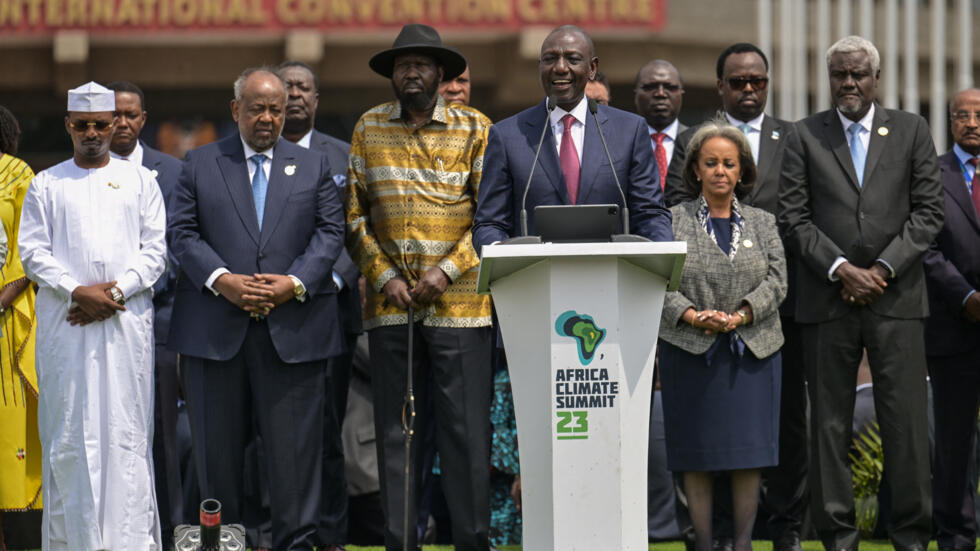THE AFRICA CLIMATE SUMMIT 2023 : A MISSED OPPORTUNITY FOR INCLUSIVITY
The recently concluded Africa Climate Summit held in Nairobi from 4th– 6th September 2023 brought together leaders from across the continent to address one of the most pressing issues in this day, age and era – climate change. However, amidst the summit’s hit, themed “Driving green growth and climate finance solutions for Africa and the world” alongside discussions around emissions, conservation, and sustainable practices, there was a crystal clear miss and omission in the conversations: the voices of vulnerable communities and groups were notably sidelined. In this case, the voices of persons with albinism.
 "We are not here to catalogue grievances and list problems. We are here to scrutinize ideas, assess perspectives, and unlock solutions." That was the statement made by the president of Kenya, Dr. William Ruto. The president’s intent was seemingly to emphasize the need for proactive problem-solving rather than dwelling on grievances, which is a brilliant climate action trajectory. However, it is impossible to focus on solutions to non-tabled problems. Solutions are meant for problems and grievances. The late Margaret Ogola put it best in her novel “The River and the Source”, “how can you know where you are going if you do not know where you are coming from? While the intent may have been to drive the focus towards actionable solutions, it blindly shut the door on addressing the unique challenges faced by vulnerable communities such as persons with albinism (PWAs) due to climate change hence neglecting inclusive solutions to inclusive challenges. To address climate change substantially, it is imperative that we acknowledge the specific and unique challenges faced by all segments of society.
"We are not here to catalogue grievances and list problems. We are here to scrutinize ideas, assess perspectives, and unlock solutions." That was the statement made by the president of Kenya, Dr. William Ruto. The president’s intent was seemingly to emphasize the need for proactive problem-solving rather than dwelling on grievances, which is a brilliant climate action trajectory. However, it is impossible to focus on solutions to non-tabled problems. Solutions are meant for problems and grievances. The late Margaret Ogola put it best in her novel “The River and the Source”, “how can you know where you are going if you do not know where you are coming from? While the intent may have been to drive the focus towards actionable solutions, it blindly shut the door on addressing the unique challenges faced by vulnerable communities such as persons with albinism (PWAs) due to climate change hence neglecting inclusive solutions to inclusive challenges. To address climate change substantially, it is imperative that we acknowledge the specific and unique challenges faced by all segments of society.

Climate change has undoubtedly affected everyone, regardless of their abilities or disabilities. However, its effects are more severe on vulnerable populations. These individuals often experience heightened ramifications. Take for instance a person with albinism. According to our climate action programme’s spot check back in July this year, PWAs from Murang’a, Kisumu and Mombasa have had to cut down on their working hours in order to evade the UV radiation from the scorching sun. Less working hours automatically equates to less income. The heat wave has also sprung forth the urgent need for more protective clothing which is either not massively available or not affordable to PWAs. These are problems that would drive solutions on the just concluded Africa Climate Summit but because seemingly there were already “premeditated and prioritized” solutions to opaque problems, now we have a population that will miss out on being included in the climate action program.
Being an Africa Climate summit, it should have given a platform for marginalized groups in Africa to table their issues resulting from climate change. Their voices deserve to be heard, and their concerns should be at the forefront of climate change discussions. Moving forward, such summits should be people-oriented, with a focus on including the voices of those who feel the heat the most. It is crucial to ensure that marginalized communities are actively involved in the planning and execution of climate change initiatives. Their perspectives, experiences, and needs must be integrated into climate policies, adaptation strategies, and mitigation efforts.

The Africa Climate Summit missed a valuable opportunity to promote inclusivity and diversity in the fight against climate change. To effectively combat this global crisis, we must recognize that climate change is not a one-size-fits-all issue. It asymmetrically affects various communities and groups and their unique challenges and solutions should be acknowledged and intermarried into the broader climate agenda. True progress in addressing climate change can only be achieved when no one is left behind, and the most vulnerable among us have a seat at the table.